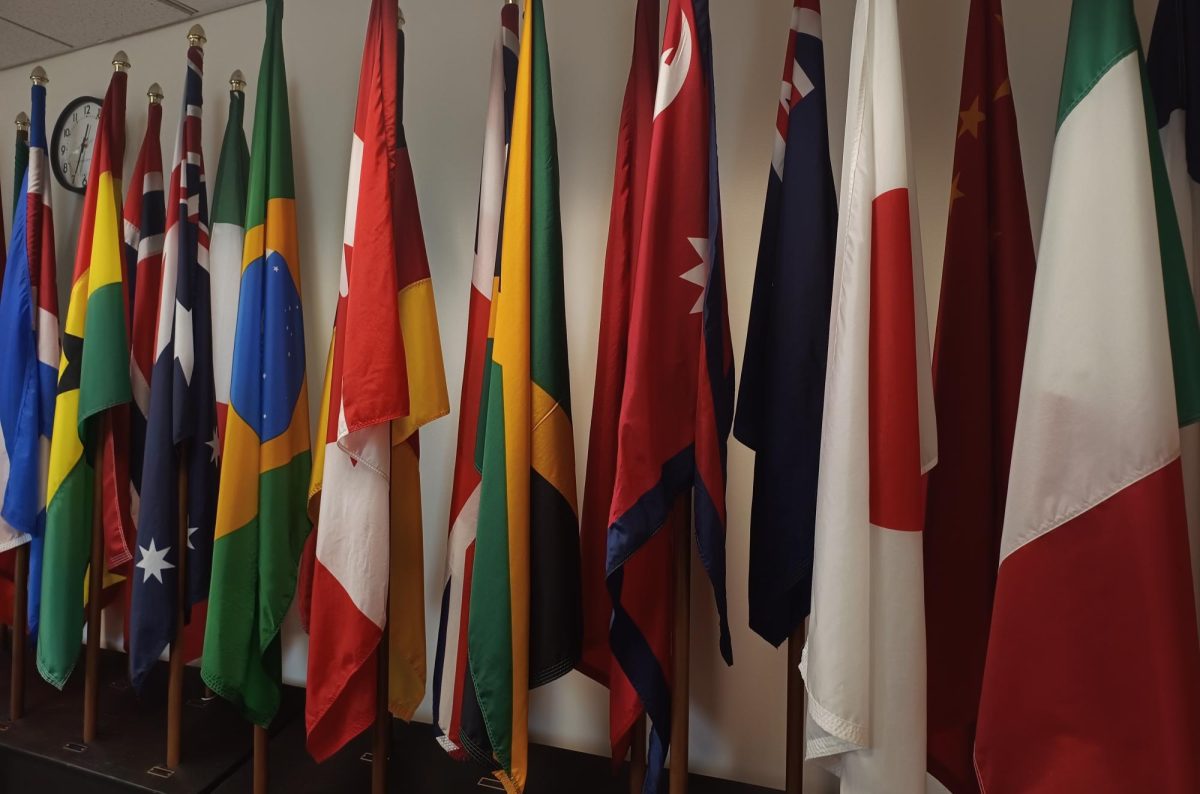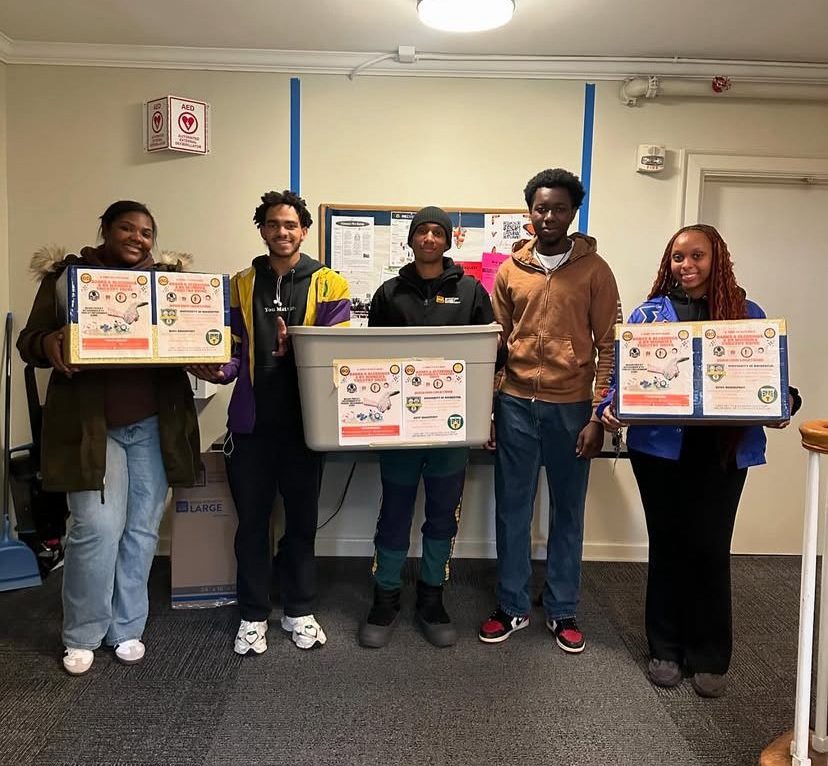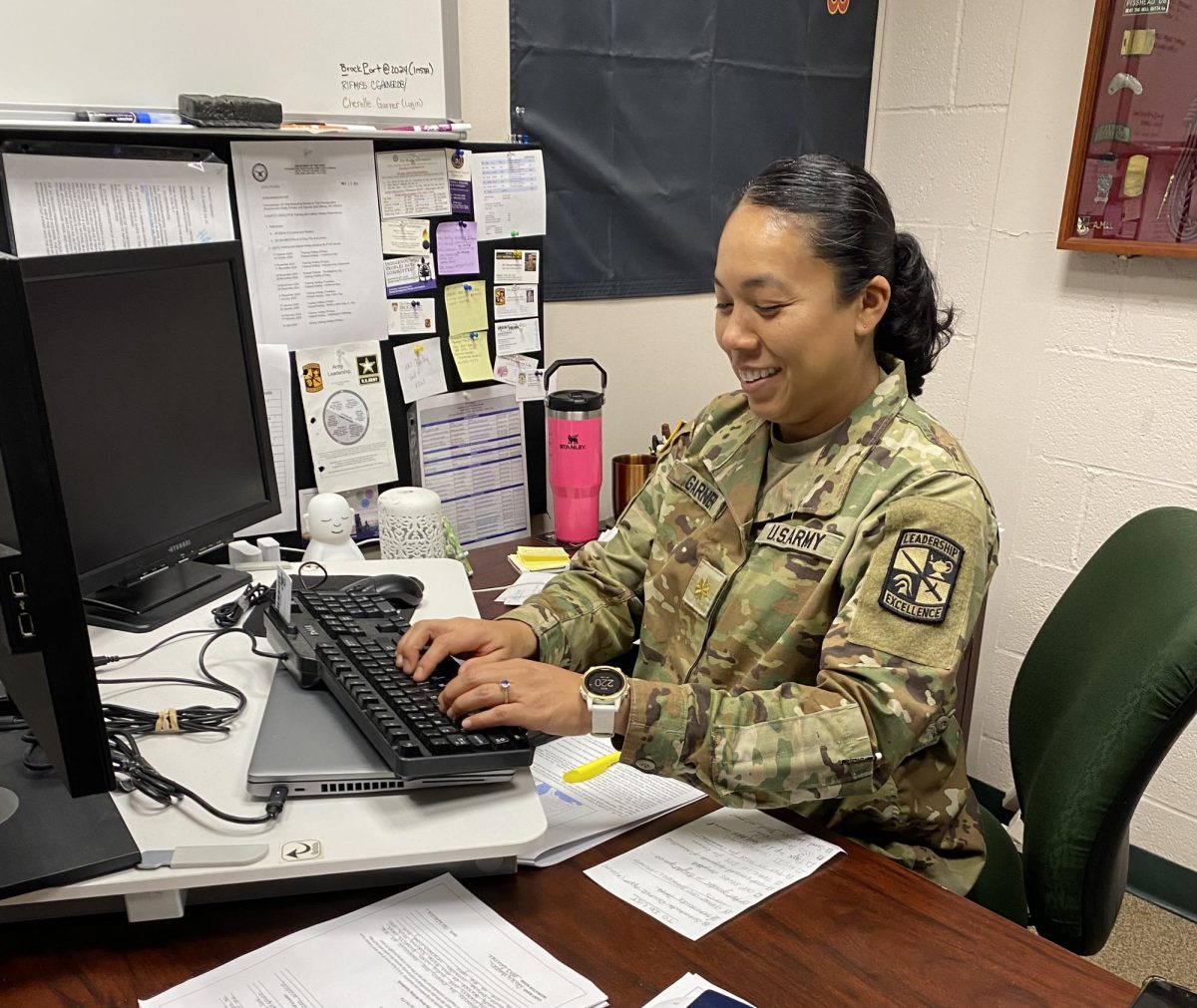BROCKPORT, N.Y. – On a typical weekday, SUNY Brockport junior, Marc Shermerhorn, wakes at 8 a.m., going about his morning routine before sitting down at his computer—where he consults a checklist—deciding on what he hopes to accomplish that day. Shermerhorn might be more organized than some, and maybe less so than others, but the self-discipline that’s required for optimum online learning can elude even the most meticulous of students.
Shermerhorn frequently finds himself cutting corners, and putting things off for another day.
“It’s a strange feeling of not being busy, and having a lot to do,” Schermerhorn said. “It’s this weird feeling—it’s like every day is a Sunday, where there’s nothing immediate going on, but tomorrow is Monday. If I do anything unproductive there’s a certain amount of shame that goes along with it, but it’s also that these quarantine semesters have really upped my procrastination.”

SUNY Brockport shifted to remote learning in March of last year, and maintained this new adjustment until the current semester, when professors were given the option of returning to the classroom. Still, most educators chose to continue with remote learning to mitigate the risks associated with COVID-19.
Schermerhorn had never taken online classes before, but he expected there would be growing pains.
“I thought things were going to be messy,” Schermerhorn said. “And at least originally, they did meet those expectations, and probably still do somewhat, though, it’s kind of settled down more.”
These expectations were shared by 30-year-old, SUNY Brockport senior, Devon Schlesing, although, he’d at least had some previous experience with online learning.
Schlesing wouldn’t call the typical online learning environment an ideal scenario, but he does feel that they were easier in the past—making sure to emphasize that having a choice in the matter might be an element that’s overlooked when examining student performance. Indeed, recent research would support this assessment, that having a choice can be a vital prerequisite for success.

Even with his past experiences, Schlesing anticipated serious hurdles for the new system.
“When it first happened, I knew it was going to be a blood bath,” Schlesing said. “Because half of my professors were like, ‘Well, I’ve never done this before, so, here we go.’ But I didn’t expect there to be as much busy work, but it has just become, ‘Here, read this many books this week and write this many pages by Friday; oh, and do the same thing next week, and the same thing next week; oh, and we’re not going to have any breaks either.’”
Dr. James Whorton, Professor of English at SUNY Brockport, encountered some shortcomings early on as well, although, they tended to fall on the technical side of things—and were minor when compared to what students often dealt with.
“I didn’t know what kind of software I’d be using until pretty late in the game,” Dr. Whorton said. “And I wound up using Microsoft Teams, and there were some hurdles in figuring that out at the last minute.”
These software deficiencies Dr. Whorton experienced were eventually overcame when the school secured a licensing deal with Zoom after the fall semester.
While Dr. Whorton hasn’t seen a noticeable decline in grades, Shermerhorn and Schlesing have.
Shermerhorn’s marks have suffered with the shift, though, it hasn’t been too dramatic. But for some students like him, a couple of B’s on a transcript can be more consequential than one might expect.
On the other hand, Schlesing, who also works a nearly fulltime job at a restaurant, has seen a more dramatic decline in his grades.
“If I had in-person classes I wouldn’t work as much as I do,” Schlesing said. “If I was on campus all the time, I would probably have more free time outside of class to do more schoolwork. I wouldn’t be at work all the time.”
The unstructured downtime that comes with remote learning can surface in different ways. Schlesing says it’s led to him working more hours. He stops short of saying his employer is taking advantage of his status as an online student, but there is some murkiness to the arrangement, where he often feels obligated to acquiesce.
“They give me Monday through Wednesday off for school,” Schlesing said. “But every other day I’m working, and long hours. I’m barely home. I wake up and go to work and don’t get home until 11 p.m. or 12 a.m. To jam all of my school work into three days, and choose to go to work, you either have no life at all, or just burn yourself out, and my grades have suffered trying to avoid that.”

Dr. Whorton takes it a step further—that the disparity in student access to reliable internet, software and hardware, and other logistical problems have created an inequity in students’ abilities to take full advantage of remote learning.
“I think going online puts a lot of students at a disadvantage,” Dr. Whorton said. “And a lot of it has to do with money. I’ve heard stories about people who, to join class, had to drive to Starbucks to get internet and then sit in their car and phone-in from the parking lot. Or what if your mom and sister are having a fight? What if your computer breaks? Teachers worry about students who want to be engaged, but there’s just so many distractions and technical problems getting in the way.”
“In a normal spring semester there are people who miss class because of snow, and that’s unavoidable, but in this semester there’s people who miss class because their internet went down or their laptop is broke.”

While employment and student inequities certainly can compound the issue, similar themes emerge when talking to both students: no one was ready for this, this isn’t what they signed up for, and asynchronous classes are often too demanding and uncompromising.
It’s a delicate situation, and all parties are trying to navigate it as best they can. But still, there are purported problems with the new system, and asynchronous classes in particular, that continue to surface.
“We’re basically doing all of the busy work for these online classes,” Schlesing said. “But we’re not getting the full experience of going to school—learning in school. Reading a text or textbook every week and posting to a discussion board doesn’t work for me; it’s not the experience I’m paying for.”
There are undeniable feelings of being short-changed by the school, but at the heart of it, it may be that many students are less capable of the self-discipline required for success. They often don’t receive the type of support, leeway, or structure from their professors and curriculum that they need—and all the while battling the inherent shortcomings of the online class model.
“I feel like I’m not actually learning much from the professors, mostly, and that’s not entirely their fault,” Schermerhorn said. “but discussion boards don’t work. Just, I’m not going to do much more than the bare minimum.”
“The experience of going to class and having that structure, when you kind of know exactly how your day’s going to go, that’s all gone,” Schlesing said. “You kind of have to motivate yourself, and sometimes it’s just super hard to do that. It’s hard. Instead of sitting here watching Netflix, you’re trying to motivate yourself to open up your laptop and get reading done. It’s like, I don’t want to read 30 pages of Edgar Allen Poe when I can watch Peaky Blinders.”
While Dr. Whorton doesn’t teach any asynchronous classes, he’s still noticed that student participation and engagement can be difficult to ascertain.
“Sometimes I wind up with a workshop where half of the people are represented by a black rectangle,” Dr. Whorton said. “And I think their listening, but you just don’t have that sense of engaging with the group. They can’t always help it too—sometimes you just need to get out of the house to get your work done.”
It’s worth noting that this online learning format is likely far more suited to certain subjects rather than others.
“The geology class I took last semester was done quite well,” Schermerhorn said. “But I think that’s kind of the nature of that kind of class. It had structure to it, which a lot of other classes are missing. You knew exactly what you had to do.”
Both students believe that these online configurations have gotten better, better streamlined, a little more consistent, but it’s still a far cry from a finely tuned machine. Some professors are more adept than others, and expectations, engagement, and formatting can be all over the map.
“It’s different for different professors,” Schermerhorn said. “In the beginning we were all in the same boat and there was a mutual agreement about how, like, stuff was going to be looser, but now there are some professors that are trying to do things that don’t work as well in this situation, and then others who are very understanding of people’s lives.”
Dr. Whorton understands these problems and has tried to be judicious in his assessments of what’s fair.
“I might be a little more lenient in my grading now,” Dr. Whorton said. “I don’t want to mark down a grade in a way that I can’t adequately explain. So, if I can’t explain myself as well, I don’t want to punish students for that.”
Students and teachers are struggling in a situation that’s far from ideal, no question, but it isn’t catastrophic. Some are more adept than others, some are better suited to the online format, some are graduating; but thankfully, a return to normalcy appears to be on the horizon, and it couldn’t get here fast enough.



























